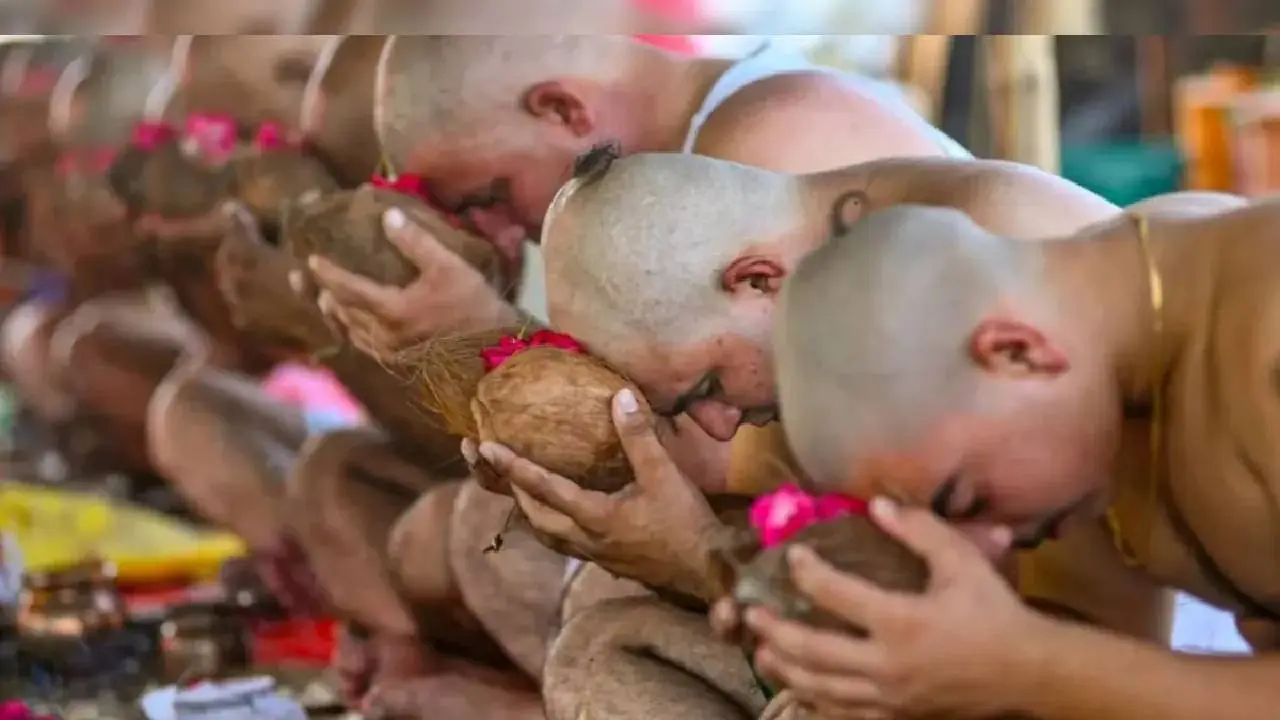
UP Village Shraddh Ban
Regional News: Bhagta Nagla village in Gunnaur tehsil has around 2,500 residents, mostly from the Yadav community, along with some Muslims and Brahmins. For nearly 100 years, no Shraddh rituals have been performed here. During Pitru Paksha, no Brahmin is invited, no food offerings are made, and even beggars avoid entering. The belief that performing Shraddh could bring misfortune still rules the mindset of villagers, shaping their faith and customs every year.
The legend traces back to a century ago, when a Brahmin woman had come to perform post-death rituals for a family. Heavy rains forced her to stay in the village for a few days. On returning home, her husband accused her of infidelity and abandoned her. Broken and humiliated, she returned to Bhagta Nagla. Blaming her stay for her misfortune, she cursed the village, declaring that performing Shraddh here would bring disaster. Since then, her words have been treated as destiny.
Over the years, whenever anyone tried to break this tradition, they reportedly faced severe hardships. Elders recount stories of misfortunes striking families who attempted Shraddh ceremonies, from sudden illness to crop failure. Such incidents deepened the belief that the curse was real. Gradually, no one dared to defy it. This fear turned into an unshakable custom, passed down from generation to generation, and it continues with the same force even today.
For the entire fortnight of Pitru Paksha, Bhagta Nagla looks different from other villages. No rituals are performed, no Brahmins are called for offerings, and no donations are given. Even local Brahmins avoid participating in any religious functions. Families quietly remember their ancestors without rituals. Children grow up hearing this story, and the atmosphere of silence during these days reinforces the old tradition in every household.
Village head Shanti Devi and her husband Ramdas explain that they simply respect the words of their elders. Ramdas says, “After that woman’s curse, our forefathers stopped Shraddh. We are only following their path.” Elderly villagers like Hetram Singh and Ramphal narrate incidents where families who tried to break the custom suffered. Their stories strengthen the resolve of others, keeping the tradition alive even in modern times.
Despite social changes and the spread of education, villagers of Bhagta Nagla still believe the curse cannot be ignored. To them, this tradition is both fear and faith. Religious scholars may call it superstition, but for locals, it is part of identity. The story of the Brahmin woman has become folklore, binding the community together. For outsiders, it may look unusual, but for the people here, it is a way to honor their past and avoid misfortune.





Copyright © 2026 Top Indian News
